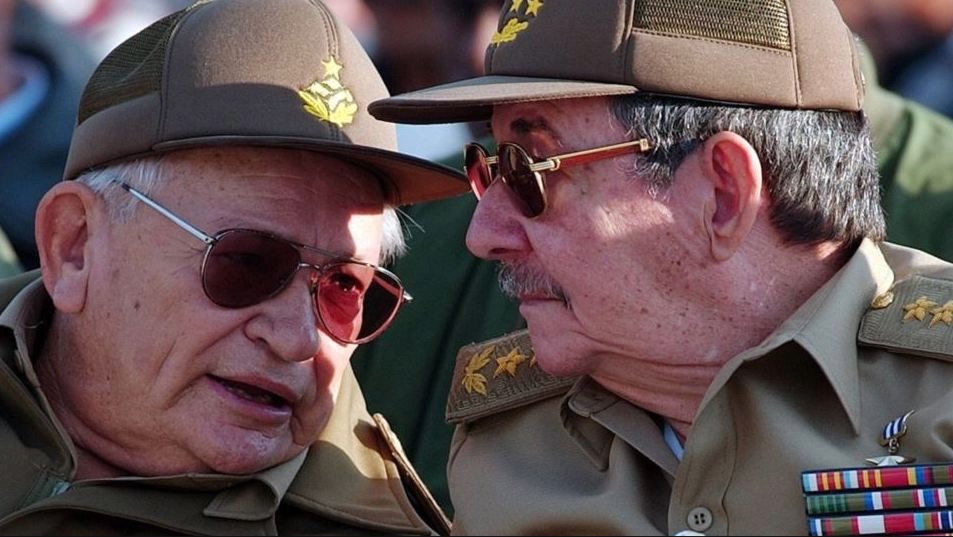As Cuba crumbles to pieces, each one seems to have an owner and a receiver, with each one making money off inducing poverty, unfairly exploiting their privileged positions and getting away with it all, unscathed. It is, probably, the worst possible portrait of human misery.
Raúl Castro's family controls GAESA, parcel delivery, and tourism, while those of Guillermo García Frías and Juan Almeida Bosque run the agri-food business and the monopoly on imports. The Miguel Díaz-Canel and Manuel Marrero tandem, wallowing in tourism dividends, is raking it in.
The only "merit" of the country's top five families consists of wielding instruments to make fortunes while tormenting everyone else with barriers impeding progress. They are not the only ones, but they are the biggest. Without transparency of any kind, the regime has "empowered" these and other higher-up bloodlines.
The era of MSMEs
According to the 2023 Corruption Perceptions Index (CPI, Transparency International), Cuba regressed for the fifth consecutive year in this area. Among 180 countries, it appears in 76th place, with only 42 points out of 100.
Corruption is "advancing" rapidly in Cuba, at almost the same pace as political repression and hunger. Every little step in the direction of economic liberalization actually exacerbates the inequality of opportunity in Cuba, as the communist elite exploits public powers and resources to expand its capitalist privileges. Meanwhile, the real entrepreneurs are left sweating —fiscally and literally.
Although Transparency International's CPI does not offer many details, the Micro, Small and Medium-sized Enterprises (MSME) approval and operation process offers some clues about this deterioration.
"The state has discretionary power. Private property in Cuba is a kind of favor, so to speak. The State has the discretionary power to choose which businesses are approved, which MSMEs will exist and which won't. This creates an arbitrary and unfair incentive, and public officials are bribed to get permits," says Lennier López, an adjunct professor at Miami Dade College.
Speaking to DIARIO DE CUBA, the academic supervisor of the Cuba Próxima think tank acknowledged that "some market liberalization entails the risk of increasing corruption." On the island, however, this is decisive, "because the State continues to have a monopoly on the production and import of products and services."
Case in point: all in the family
The case of the "singer" Juan Guillermo Almeida (Havana, 1986), the son of Juan Almeida Bosque and protégé of the late General Luis Alberto Rodríguez López-Calleja, the president of GAESA, is striking. Known as JG, he has become "the czar of beer imports" and other products in high demand.
"Juan Guillermo brings in practically all the beer found in Santiago de Cuba and in the eastern area. He even brings it from Europe. He has frontmen in Santiago, who use state facilities and resources for his private businesses," says a source in the region.
In Santiago, the youngest of the Almeidas has a "personal security" house at his disposal, where he spends time, following in the footsteps of his father. He works the import business with one of the sisters of Raúl Guillermo Rodríguez Castro, "El Cangrejo," (The Crab), Raúl Castro's grandson and bodyguard. Family, the Army, history, power, and "continuity"
"There is no law that they comply with: tax, labor, or administrative. They hire, take over cultural spaces, and do things that are, theoretically, prohibited. And, if the thing runs into trouble, they send the frontman to Dubai," the sources add.
A question of degree, according to Transparency International
Luciana Torchiaro, Transparency International's advisor for Latin America and the Caribbean, told DIARIO DE CUBA that "the country has regressed considerably since 2012, and there has been a decline in recent years."
"Cuba is not as bad as other dictatorships in the region; for example, Nicaragua and Venezuela. There is a robust dictatorship on the island, a party that controls absolutely everything. This is why it has a better score compared to other more recent dictatorships where there is no absolute control," the expert argues.
Dr. Ivette García González, a professor and member of the CubaxCuba civic thought laboratory, notes that the situation "is more serious" than what the CPI suggests, "considering the opacity and lack of government transparency, the complexity of the phenomenon, and the limitations of the measurement instrument itself."
"There is corruption in virtually every institution, but especially in the public sector, and wherever there are resources or shares of power emanating from prohibitions and chronic deficiencies, which allow for trafficking in influence, and money; and nepotism," García González told this newspaper.
She also underscored the problem of emerging "local mafias," the institutions of the Army and the civil service, and MSMEs "linked to the political class, the military and 'extended families.'"
"Many of these current companies were founded prey to and/or victims of this corrupt context. And others, among the most prosperous, are really effects of the phenomenon," he says.
No solution in sight
According to Transparency International: "the perception of corruption tends to be lower in proportion to how democratic a country is, with the full exercise of human rights, and institutions with checks and balances."
It does not seem, then, that reality will change in Cuba any time soon. Actually, it will get worse, due to the controlled expansion of its elites, and according to the shifting needs of Cuba's version of La Cosa Nostra.
"There are no names, no numbers, no public tenders. We don't know who is bidding for a contract, or what criteria were used to determine the winner. Everything is opaque," complains Lennier López.
For the present and future of the Island, Luciana Torchiaro believes it is essential to improve public bodies' levels of transparency, establish accountability systems, eliminate broad discretionary powers, and respect political and civil rights, including freedoms of the press, expression, association, and information.
For now, the continuation of the status quo prevents this.
